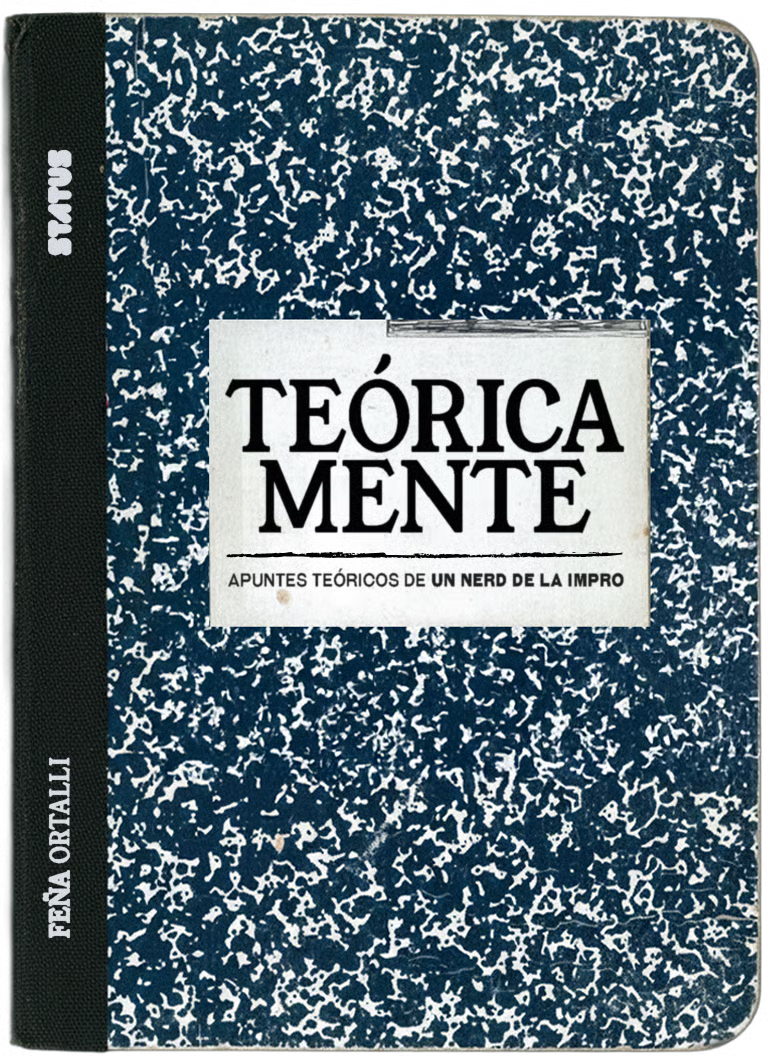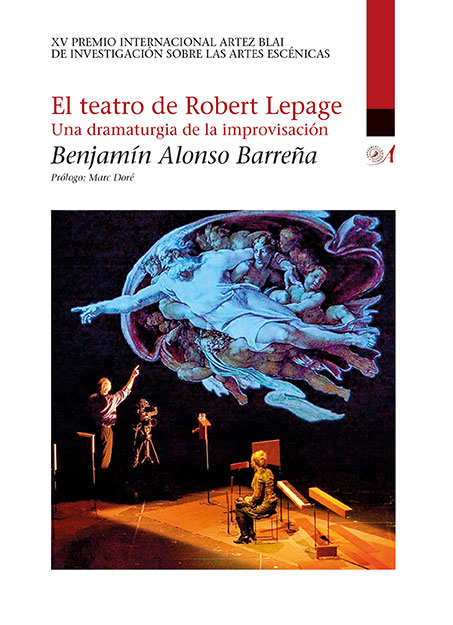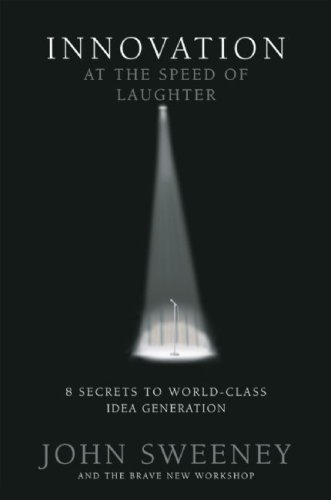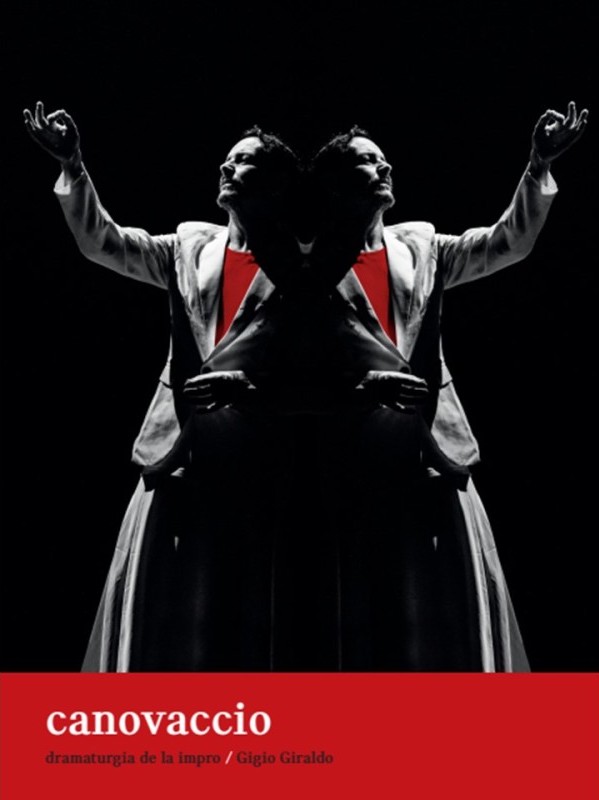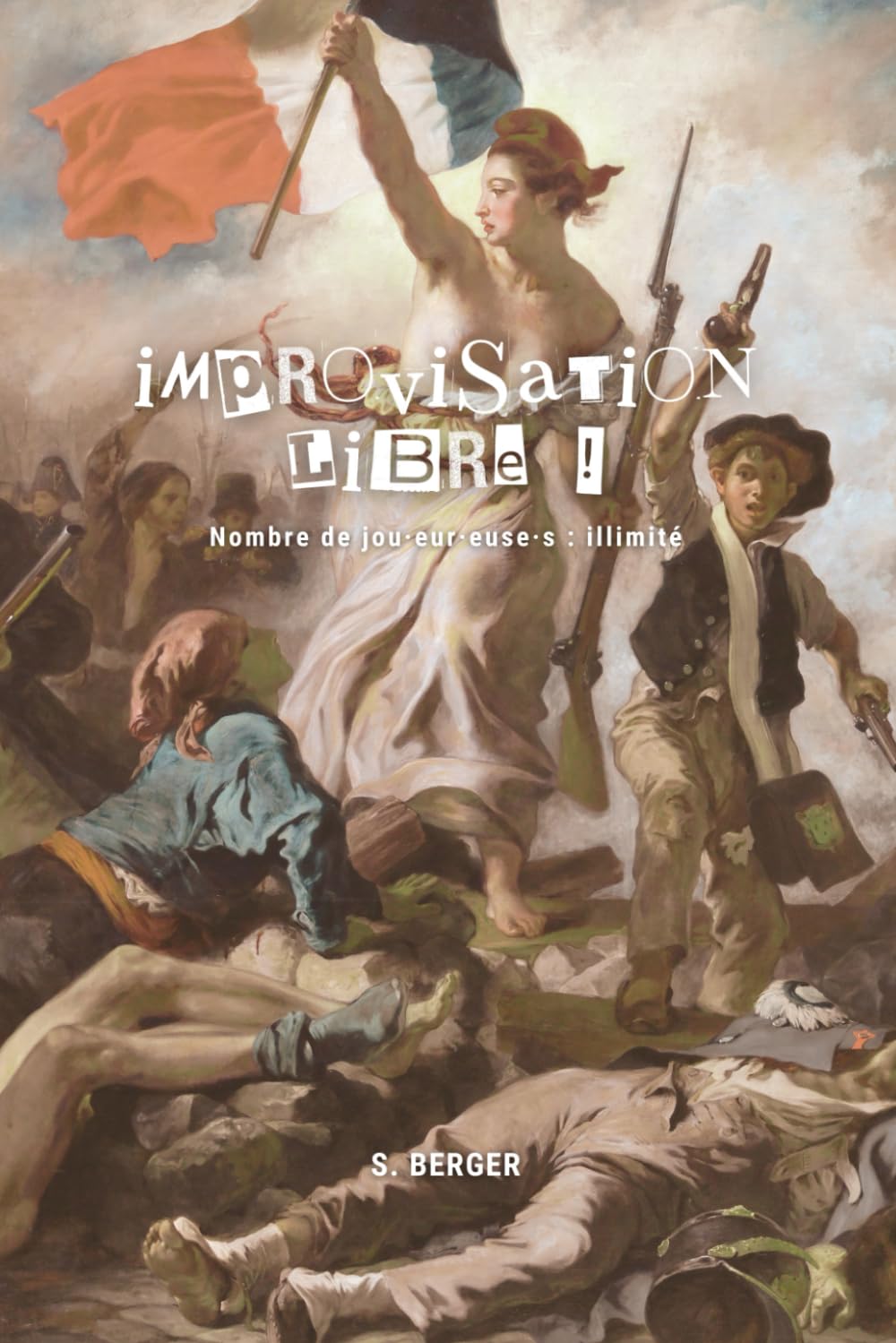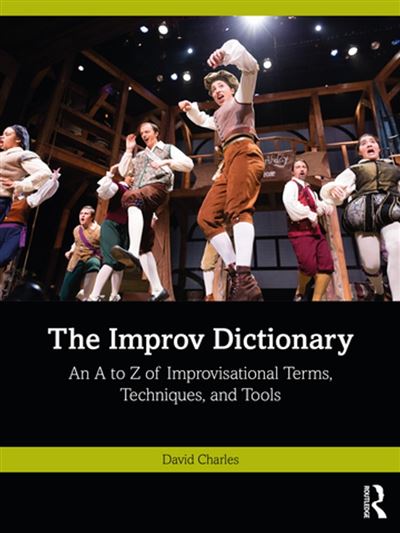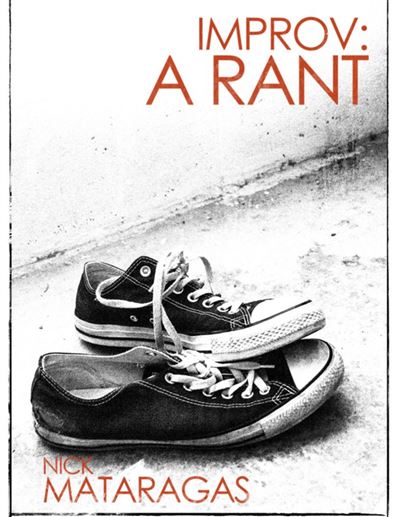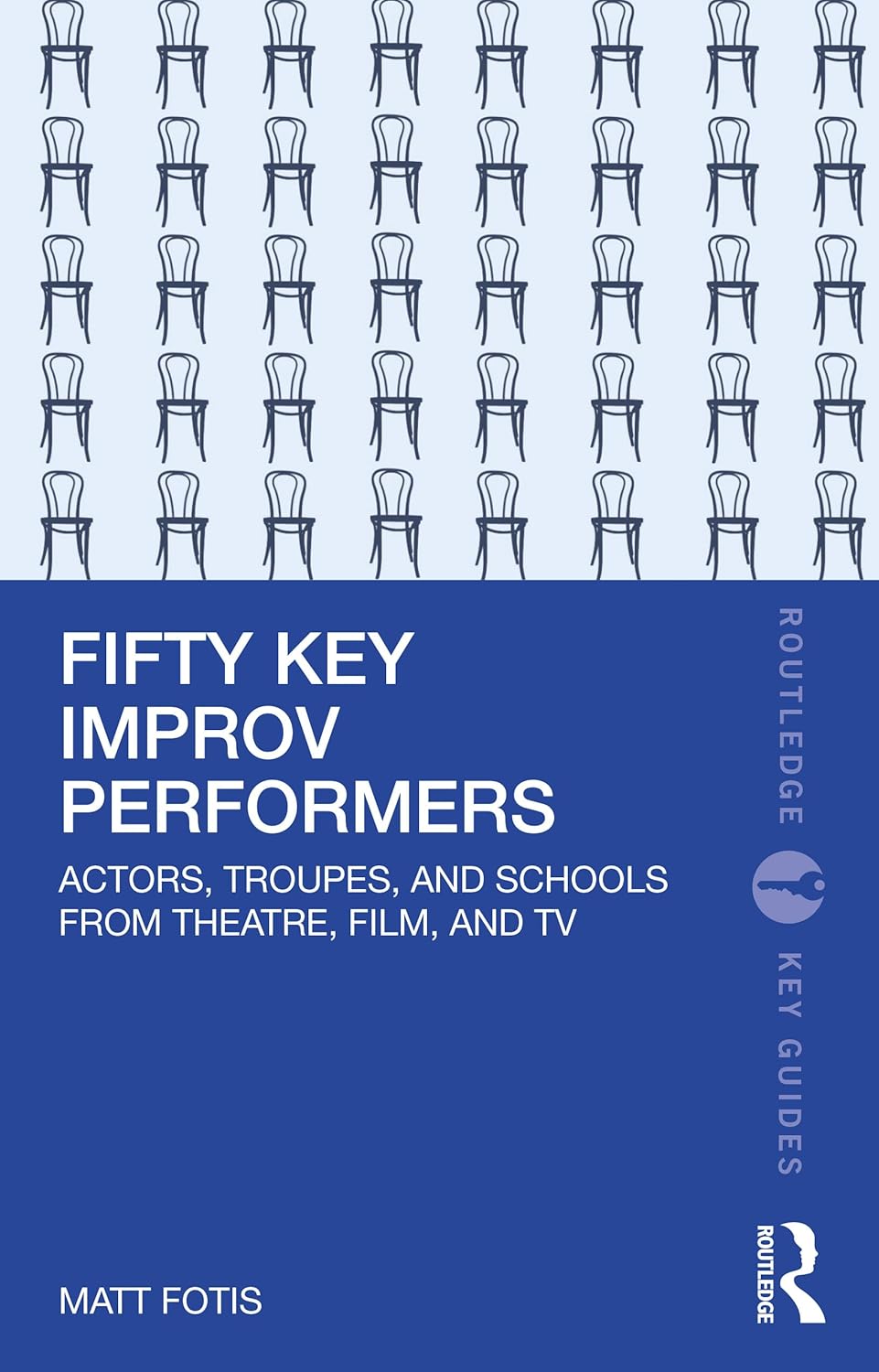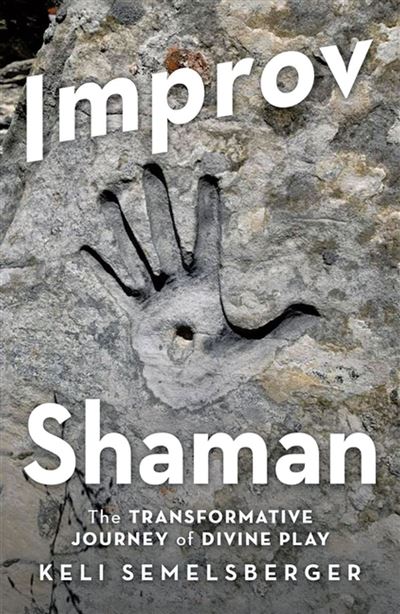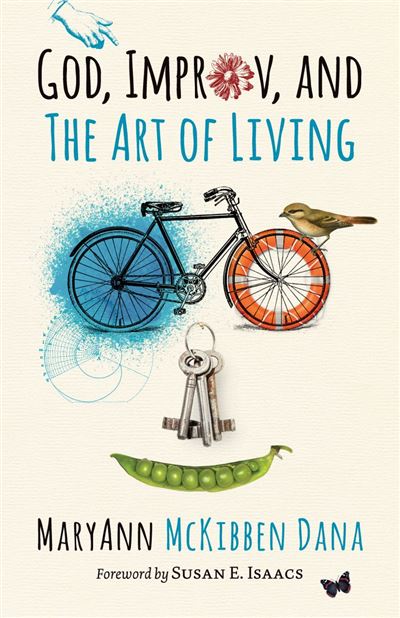New book by Feña Ortalli. And no, this time is not about football. 190 pages of technical and theoretical exploration of different concepts in improvised theatre.
Essay
In the following books, dissertations are made on the theatrical event and improvisation, its state and evolution.
El teatro de Robert Lepage. Una dramaturgia de la improvisación “Robert Lepage fue mi alumno en el Conservatorio de Arte Dramático. Era una esponja, lo absorbía todo en las clases y lo reutilizaba después en nuestros talleres libres, unas veladas mensuales en las que los alumnos presentaban escenas o números propios. No se perdía ninguna clase y siempre nos sorprendía con la originalidad y elegancia, por no decir el estilo, de sus intervenciones. Yo no podía adivinar en lo que se convertiría más adelante, pero detecté muy pronto que era un creador. Apoyándose en sus puntos fuertes y reconociendo sus debilidades, se reinventó a sí mismo por medio de un teatro en el que podía crecer y aportar nuevo material.”
Innovation At the Speed of Laughter: 8 Secrets to World Class Idea Generation Innovation at the Speed of Laughter explores the unexpected ways in which the tools of improvisational comedy can improve business performance. Combining his insights as a successful businessman with his expertise as a performer, John Sweeney reveals eight secrets to jump-starting workplace creativity and corporate ideation developed from the quirky, spontaneous art form of improvisation. The secrets include ‘Accepting All Ideas,’ ‘Deferring Judgment,’ and ‘Creating a Statusless Environment.’ Sweeney and the Brave New Workshop have used these secrets to help companies like General Mills, 3M Corporation, Hewllett-Packard, and Disney develop wonderfully uncommon ideas. Innovation at the Speed of Laughter will similarly help businesses, leaders, and individuals tap into their innovative potential–for creative expression as well as profitability.
At some point in our lives, we have all experienced the intense curiosity to discover the inner workings of the toy we love, that toy that brings us pleasure, that ignites in us the passion to keep playing. Why is it the way it is? Why does it move the way it does? What makes it so fun? How does its soul work? Canovaccio, dramaturgia de la impro is a journey into the heart of the challenging toy that is theatrical improvisation, an invitation to be surprised as we dissect its body, as we expose its skeletal structure to those who practice it and those who have enjoyed it as an audience, in search of answers that allow us to understand its inner workings. More than twenty years of the author’s theoretical and practical research underpin this unique journey in search of the rules that govern this unpredictable sea of improvised dramatic structure, finding answers to many questions and provoking many others, not with the aim of controlling it—it would be impossible to master what is by nature untamable—but rather to learn to swim in it. Drawing on historical research and the author’s practical experience, this book reflects on and…
Dive into the heart of the theatrical revolution with “Free Improvisation!”, a bold essay that reveals the mechanisms and formidable political potential of theatrical improvisation. With this plea for a free, vibrant, welcoming, and subversive theater, the author invites us to rethink the dramatic art around the values and virtues of improvisation. Whether you are an artist seeking new creative horizons or a citizen eager to rethink the foundations of society, “Free Improvisation!” takes you on a captivating intellectual and artistic journey, where freedom is the rule and imagination the only limit.
An A to Z of Improvisational Terms, Techniques, and Tools The Improv Dictionary: An A to Z of Improvisational Terms, Techniques, and Tools explores improvisational approaches and concepts drawn from a multitude of movements and schools of thought to enhance spontaneous and collaborative creativity. This accessible resource reveals and interrogates the inherited wisdoms contained in the very words we use to describe modern improv. Each detailed definition goes beyond the obvious clichés and seeks a nuanced and inclusive understanding of how art of the moment can be much more than easy laughs and cheap gags (even when it is being delightfully irreverent and wildly funny). This encyclopedic work pulls from a wide array of practitioners and practices, finding tensions and commonalities from styles as diverse as Theatresports, Comedysportz, the Harold, narrative long-form, Playback Theatre, and Boal’s Theatre of the Oppressed. Entries include nuanced definitions, helpful examples, detailed explorations of the concepts in practice, and framing quotes from a leading practitioner or inspirational artistic voice. The Improv Dictionary offers valuable insights to novice improvisers taking their first steps in the craft, seasoned performers seeking to unlock the next level of abandon, instructors craving a new comprehensive resource, and scholars working in one of…
Nick Mataragas has opinions on improv. Lots of opinions. You may not agree with them. But then again, you might. Improv: A Rant is Nick’s unfiltered view on the state of improv today, what makes for good scenes, and how you should treat the profession. Whether you agree with the thoughts or not, this book will make you think about what you are doing on stage.
Fifty Key Improv Performers: Actors, Troupes, and Schools from Theatre, Film, and TV Fifty Key Improv Performers highlights the history, development, and impact of improvisational theatre by highlighting not just key performers, but institutions, training centers, and movements to demonstrate the ways improv has shaped contemporary performance both onstage and onscreen. The book features the luminaries of improv, like Viola Spolin, Keith Johnstone, and Mick Napier, while also featuring many of the less well‑known figures in improvisation who have fundamentally changed the way we make and view comedy – people like Susan Messing, Jonathan Pitts, Robert Gravel, and Yvon Leduc. Due to improv’s highly collaborative nature, the book features many of the art form’s most important theatres and groups, such as The Second City, TJ & Dave, and Oui Be Negroes. While the book focuses on the development of improvisation in the United States, it features several entries about the development of improv around the globe. Students of Improvisational Theatre, History of Comedy, and Performance Studies, as well as practitioners of comedy, will benefit from the wide expanse of performers, groups, and institutions throughout the book.
The Transformative Journey of Divine Play Improv comedy is known as a challenging comedic performance art, which Keli has been teaching, directing and performing for over a quarter of a century. As Keli expanded her world view by traveling to sacred places and training with master spiritual teachers, she came to understand that improv was not just her art and her job, it was her medicine. Not only was it her practice to sooth her own soul, but it was the way in which she, has been able to be a “hollow bone” and let the healing energy of Divine play move through her and transform the lives of her students. This book is her love letter to improv, and to all the brave souls willing to live in the moment, to accept themselves and others as they are, and to co create with the world by saying YES, and……
“We’re all improvisers,” says MaryAnn McKibben Dana, whether we realize it or not. In this book McKibben Dana blends personal stories, pop culture, and Scripture into a smart, funny, down-to-earth guide to the art of living*.* Offering concrete spiritual wisdom through seven improv principles, she helps readers become more awake, creative, resilient, and ready to play—even (especially) when life doesn’t go according to plan..
